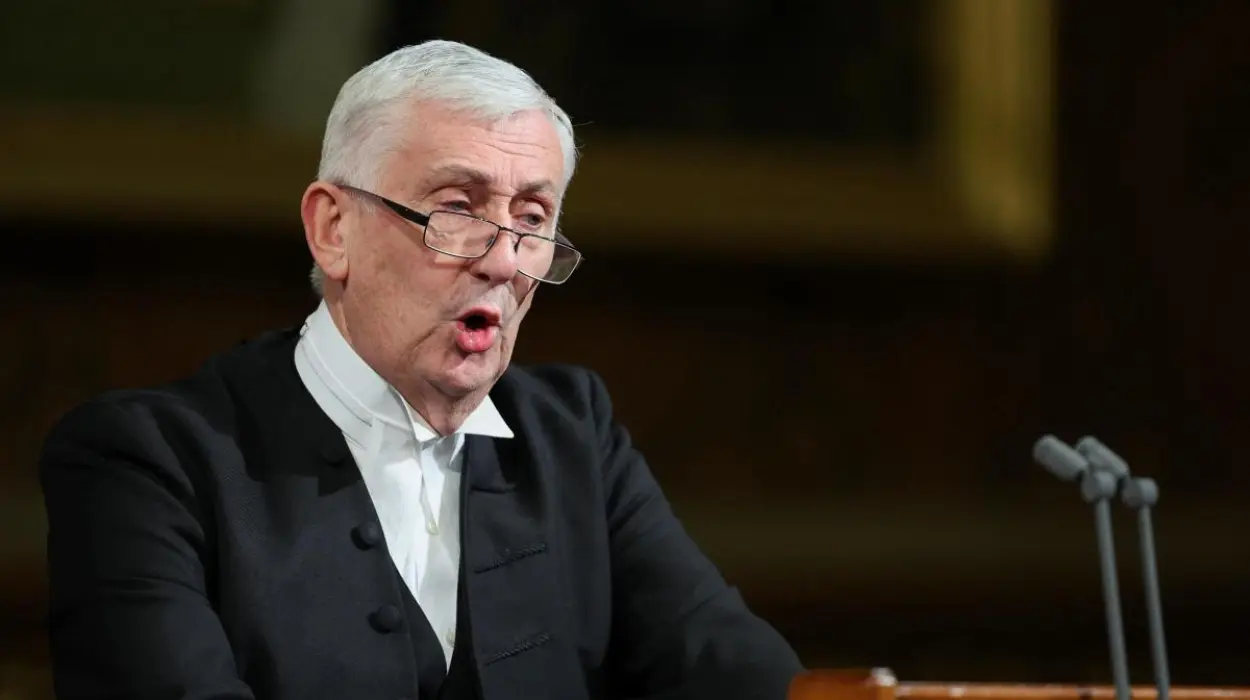UK (Parliament Politics Magazine) – Commons Speaker Sir Lindsay Hoyle confirmed he dropped his private prosecution against two men accused of spying for China, citing legal hurdles.
As reported by The Telegraph, the Speaker of the House of Commons ended his efforts to bring a private case against alleged Chinese spies.
After the Crown Prosecution Service dropped the charges in September, Sir Lindsay Hoyle commissioned expert legal advice to try to keep the case alive.
Two British men, Christopher Cash and Christopher Berry, were charged with collecting sensitive parliamentary information and sharing it with Chinese officials.
The case collapsed in September after the deputy national security adviser refused to provide evidence to the CPS linking China to a threat against Britain.
What did Sir Lindsay Hoyle say about the collapsed China spy case?
Sir Lindsay Hoyle expressed that he was “very angry” and “very frustrated” after announcing his decision.
He said,
“I wanted to know if I could do a private prosecution. We’ve taken top legal advice. My problem is there is no [legal] locus for me because, everything I’ve tried, we just can’t get it there. But it doesn’t stop us asking others who may be able to take a private prosecution [to do so] and what support can we give them.”
The phrase “legal locus” refers to applying the law in the location where the action happened. It is reported that the Speaker’s legal team examined two options for a private prosecution, but both proved unworkable.
Mr Hoyle stated,
“I’m still very angry, I am very frustrated. For two years, we’ve been looking at this and known about it and everybody said from day one, ‘this is a straightforward case that we want to take and we have no worries with the evidence we’ve got’. And then in the end it was dropped.”
He said,
“What changed in two years? How has it changed? We tried spies before the Second World War, even though Germany wasn’t the enemy.”
The speaker added,
“In the 70s, we quite rightly took on the Russians using the same act on Russian spies operating in this country against us, and the Bulgarians who were operating on behalf of Russia only months ago. They were all successful. So why was this so different?”
Mr Hoyle continued,
“It is a frustration. Yes, I’m angry. It mustn’t happen again. We’ve got to tighten up our security for the future.”
What did Richard Hermer say about criticism over the China spy trial?
Attorney General Lord Richard Hermer warned that criticising the collapse of the China spy trial could undermine public confidence and endanger national security.
He said,
“Trying to insinuate bad faith into our national security making decision [sic] does nothing to increase public confidence in it, it simply seeks to undermine and that is very dangerous where, as here, it is baseless.”
Lord Hermer told MPs,
“There was a meeting that amongst other things considered the handling of a trial that everybody at that meeting proceeded on the basis was going to commence in November.”
He said,
“Standing back in this case, where’s the problem? What is it, because I think we should all be concerned to try and identify what lessons can be learnt.”
Lord Hermer added,
“I’m clear in my mind that certainly one very significant problem here was the Act. The Act wasn’t fit for purpose, it was out of date.”
Why did charges against alleged Chinese spies fail in Parliament?
The initial concern focused on whether Christopher Cash had violated parliamentary data laws, with questions over the extent of his access.
The review concluded that the code of conduct was not triggered, as Mr Cash had not received payment through the Independent Parliamentary Standards Authority.
The China Research Group, where Mr Cash served as a researcher and later as director, could pursue legal action.
During his time at the political group, Mr Cash collaborated with Tory MPs, including Tom Tugendhat, Alicia Kearns, and Neil O’Brien, who pushed for a firmer stance toward Beijing.
The case collapsed mainly due to the Official Secrets Act, which requires the spying to benefit an “enemy,” a point prosecutors could not prove.
What is the Official Secret Act?
The Official Secrets Act was first introduced in the United Kingdom in 1911, which protects state secrets and national security. This original act has been updated several times, with the most significant reforms occurring in 1920, 1939, and 1989.
Its main purpose is to criminalise unauthorised disclosure of sensitive information related to security, intelligence, defence, and international relations.
The law binds anyone who has access to protected information, including government employees, military personnel, and even members of the public who receive the information.


